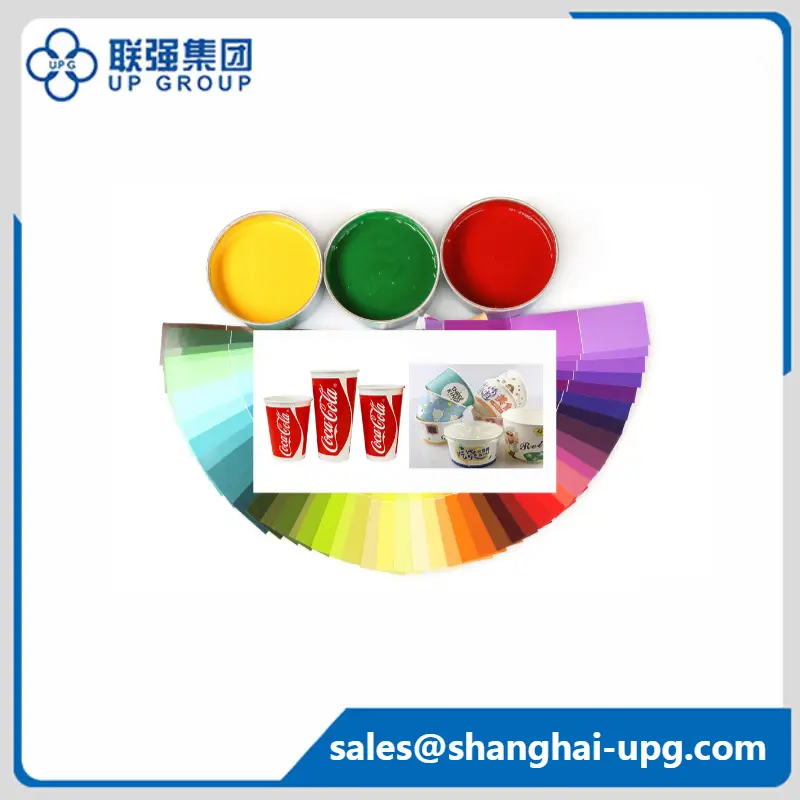In the field of printing and art, the choice of ink can greatly affect the quality, durability and overall aesthetics of the final product. Among various inks, water-based inks are popular due to their environmental friendliness and versatility. However, a common question is: how long do water-based inks last? In this article, we will explore the characteristics of water-based inks, their lifespan, and the factors that affect their durability.
Water-based inks are inks that use water as the main solvent. Unlike solvent-based inks, which contain volatile organic compounds (VOCs), water-based inks are often considered safer and more environmentally friendly. Solvent-based inks contain volatile organic compounds (VOCs) that can be harmful to health and the environment. Water-based inks are commonly used in a variety of applications, including screen printing, digital printing and fine art printing.
Water-based inks consist of pigments or dyes suspended in a water-based solution. This composition is easily washed away by water, making water-based inks the preferred choice for artists and printers who value convenience and safety. In addition, water-based inks offer vibrant colours and smooth surfaces for a variety of projects.
Durability of water-based inks
The lifespan of water-based inks can vary greatly depending on a number of factors, including the type of substrate (material) being printed on, the environmental conditions under which the printing takes place, and the specific formulation of the ink itself. In general, water-based inks are known for their durability, but in some cases they may not last as long as some solvent-based inks.
Substrate matters
The type of substrate on which water-based inks are used plays a critical role in the longevity of the ink. For example, water-based inks tend to adhere well to porous surfaces such as paper and cardboard. When printing on these materials, the ink can penetrate the fibres and form a bond, resulting in increased durability. In contrast, when printing on non-porous surfaces such as plastics or metals, the ink may not adhere well, resulting in a shorter service life.
Environmental conditions
Environmental factors such as sunlight, humidity and temperature can seriously affect the life of water-based inks. UV rays from sunlight can cause inks to fade over time, especially those inks that are not specifically formulated for UV protection. Similarly, high humidity can cause inks to smear or flow, while temperature extremes can affect ink adhesion to the substrate.
To maximise the life of water-based inks, it is recommended that prints are stored in a cool, dry place out of direct sunlight. In addition, the use of protective coatings or laminates can help protect the ink from environmental damage.
Ink Formulation
The specific formulation of water-based inks can also affect their lifespan. Some manufacturers specialise in water-based inks to improve durability and additives to improve adhesion and fade resistance. These speciality inks may be better suited for outdoor applications or items that are prone to wear and tear.
When choosing water-based inks for your project, you must consider the intended use of the end product and exposure conditions. For example, if you're printing outdoor signage, choosing water-based inks that are UV resistant and durable will ensure longer-lasting results.
Comparing water-based inks to other inks
When comparing the lifespan of water-based inks to other types of inks, such as solvent-based or oil-based inks, it's important to recognise the pros and cons. Solvent-based inks are known for their durability and resistance to fading, making them a popular choice for outdoor applications. However, they can pose environmental and health concerns due to the presence of volatile organic compounds (VOCs).
If you are in need of water-based inks, you can check out our company's Q-INK Water-based Ink for paper production printing

1. Environmental protection: because flexographic plates are not resistant to benzene, esters, ketones and other organic solvents, at present, flexographic water-based ink, alcohol-soluble ink and UV ink do not contain the above toxic solvents and heavy metals, so they are environmentally friendly green and safe inks.
2. Fast drying: due to the fast drying of flexographic ink, it can meet the needs of non absorbent material printing and high-speed printing.
3. Low viscosity: flexographic ink belongs to low viscosity ink with good fluidity, which enables the flexographic machine to adopt a very simple anilox stick ink transfer system and has good ink transfer performance.
Oil-based inks offer excellent adhesion and durability, but are difficult to clean and may require the use of solvents. Water-based inks strike a balance between environmental safety and performance and are ideal for many applications.
To ensure your water-based ink project lasts as long as possible, consider the following tips:
1. Choose the right substrate: Select materials that are compatible with water-based inks to enhance adhesion and durability.
2. Store correctly: Store printed materials in a cool, dry place out of direct sunlight to prevent fading and damage.
3. Use protective coatings: Consider using clear coatings or laminates to protect the ink from environmental factors.
4. Test before you commit: If you are unsure of the longevity of a particular water-based ink, test it on sample materials to evaluate its performance.
5.Follow the manufacturer's instructions: Always follow the ink manufacturer's recommendations for use and storage.
Water-based inks are versatile, environmentally friendly inks suitable for a variety of printing and art applications. Although the longevity of water-based inks can be affected by factors such as substrates, environmental conditions and ink formulations, they often provide a long-lasting solution for many projects. By understanding the properties of water-based inks and taking protective measures, artists and printers can achieve vivid, long-lasting results that fulfil their creative visions. Whether you're a professional printer or a hobbyist, water-based inks are an important part of your toolkit, providing both high quality and sustainability.
Post time: Dec-30-2024
